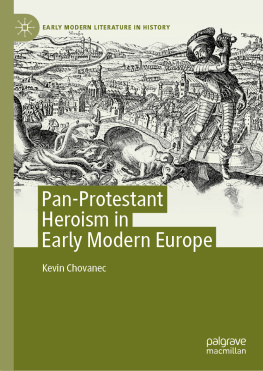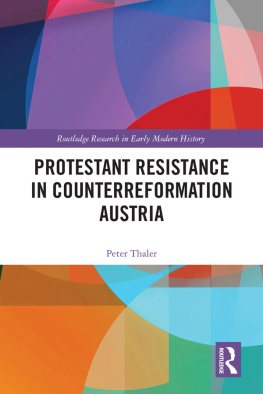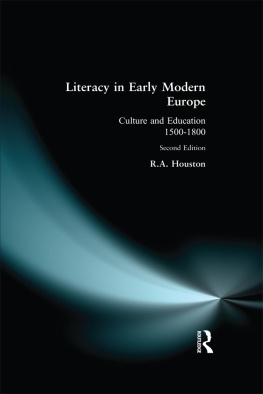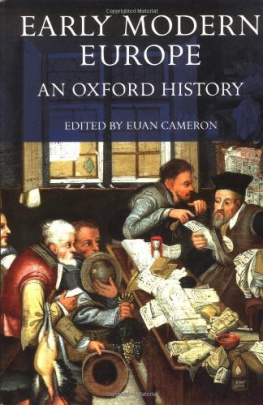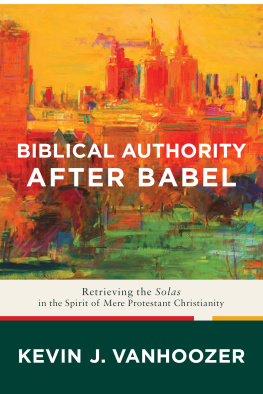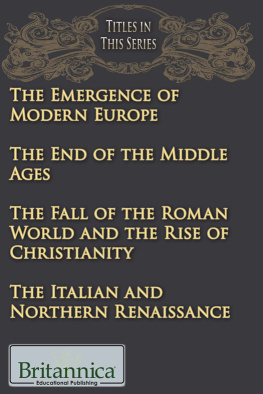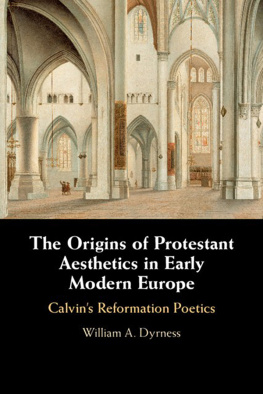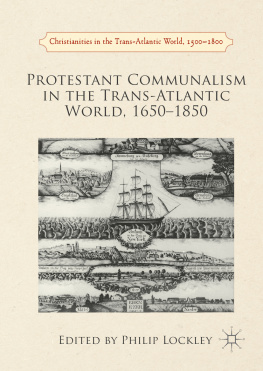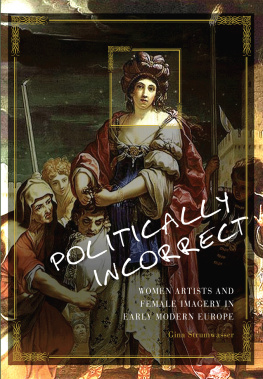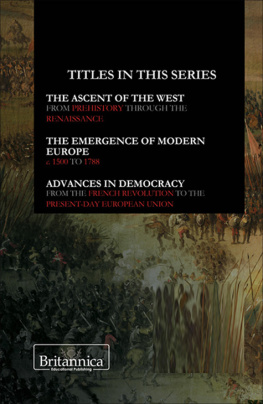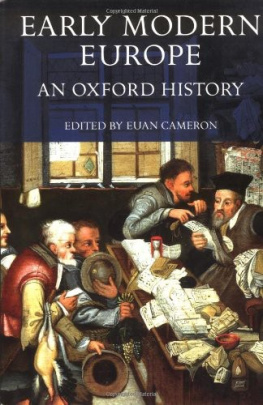Kevin Chovanec - Pan-Protestant heroism in early modern Europe
Here you can read online Kevin Chovanec - Pan-Protestant heroism in early modern Europe full text of the book (entire story) in english for free. Download pdf and epub, get meaning, cover and reviews about this ebook. year: 2021, genre: Religion. Description of the work, (preface) as well as reviews are available. Best literature library LitArk.com created for fans of good reading and offers a wide selection of genres:
Romance novel
Science fiction
Adventure
Detective
Science
History
Home and family
Prose
Art
Politics
Computer
Non-fiction
Religion
Business
Children
Humor
Choose a favorite category and find really read worthwhile books. Enjoy immersion in the world of imagination, feel the emotions of the characters or learn something new for yourself, make an fascinating discovery.
- Book:Pan-Protestant heroism in early modern Europe
- Author:
- Genre:
- Year:2021
- Rating:4 / 5
- Favourites:Add to favourites
- Your mark:
- 80
- 1
- 2
- 3
- 4
- 5
Pan-Protestant heroism in early modern Europe: summary, description and annotation
We offer to read an annotation, description, summary or preface (depends on what the author of the book "Pan-Protestant heroism in early modern Europe" wrote himself). If you haven't found the necessary information about the book — write in the comments, we will try to find it.
Pan-Protestant heroism in early modern Europe — read online for free the complete book (whole text) full work
Below is the text of the book, divided by pages. System saving the place of the last page read, allows you to conveniently read the book "Pan-Protestant heroism in early modern Europe" online for free, without having to search again every time where you left off. Put a bookmark, and you can go to the page where you finished reading at any time.
Font size:
Interval:
Bookmark:
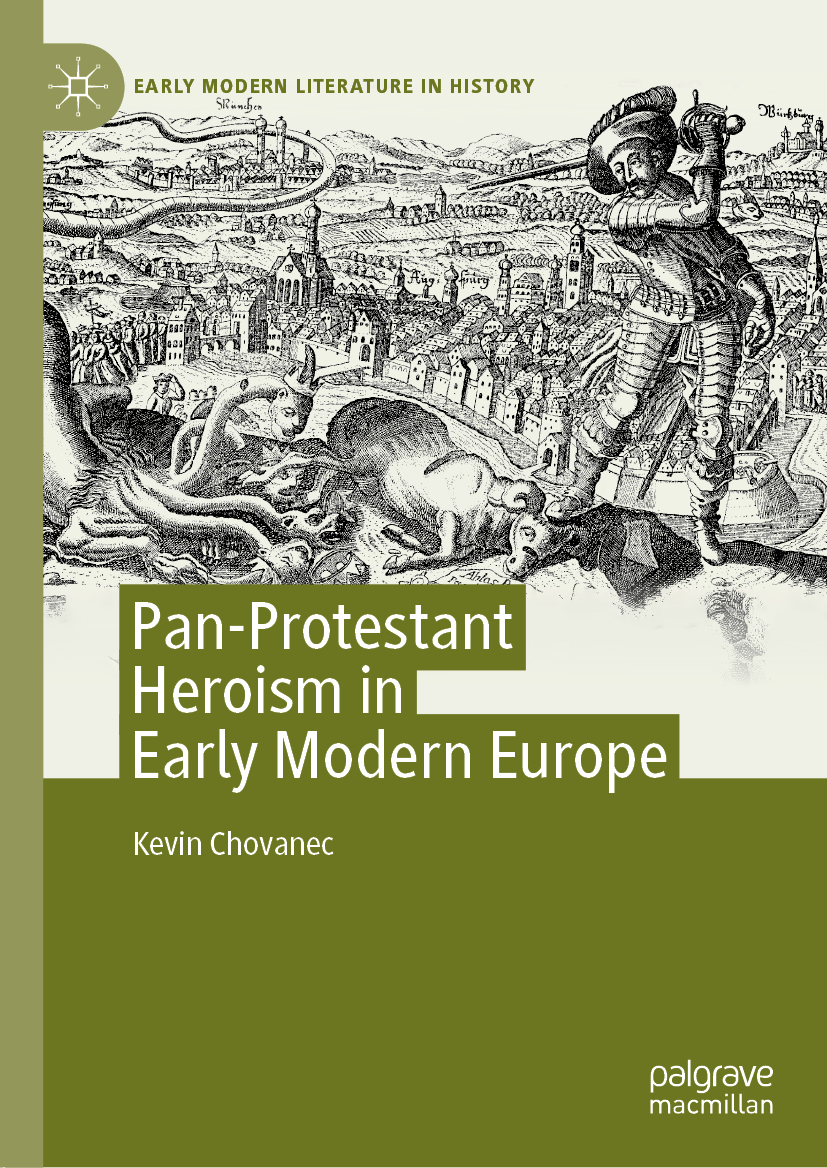
Within the period 15201740, this large, long-running series, with international representation discusses many kinds of writing, both within and outside the established canon. The volumes may employ different theoretical perspectives, but they share an historical awareness and an interest in seeing their texts in lively negotiation with their own and successive cultures.
Editorial Board:
Sharon Achinstein, John Hopkins University, USA
John Kerrigan, University of Cambridge, UK
Richard C McCoy, Columbia University, USA
Jean Howard, Columbia University, USA
Adam Smyth, University of Oxford, UK
Cathy Shrank, University of Sheffield, UK
Michelle OCallaghan, University of Reading, UK
Steven Zwicker, Washington University, USA
Katie Larson, University of Toronto, Canada
More information about this series at http://www.palgrave.com/gp/series/14199

Cover credit: FALKENSTEINFOTO/Alamy Stock Photo
This Palgrave Macmillan imprint is published by the registered company Springer Nature Switzerland AG
The registered company address is: Gewerbestrasse 11, 6330 Cham, Switzerland
Any book, as acknowledgements continually remind us, incurs innumerable debts, even more with a first book. I would like to thank the many colleagues and mentors who have guided my studies throughout my career. Entering college, I intended to be an actuary, until I was converted to a literature major by John Currans Shakespeare course; while probably a decision with negative economic effects, it has had salubrious effects on my health and happiness. Im grateful, too, to all those who shaped my scholarship at the University of North Carolina, especially Reid Barbour and Jessica Wolfe, who continued to provide tireless feedback and advice long after graduation. My thanks to past colleagues at Tulane, especially Scott Oldenburg, a fellow scholar of Anglo-Dutch exchange and one of the most generous mentors and scholars that I have met, and colleagues at my current institutional home, Christian Brothers University, where I am fortunate to be part of such a collegial and supportive environment.
Sections from my first chapter and my final chapter appeared first as journal articles. Ideas about the transnationalism of Spensers epic overlap with my The Borders of Fairyland: Transnational Readings of Spenser in Stuart England,Spenser Studies31 (2018): 7196. While only a few paragraphs, much revised in expansion, have been redeployed in this book, I would like to thankSpenser Studies, both the editors and reviewers, for the insightful feedback which helped expand my thoughts. My final chapter derives in part from a recent article inRenaissance Studies: The German Liberty in England and the Dutch Republic: On the Pan-Protestant Literary Field and the Circulation of a Loaded Epithet,Renaissance Studies32 (2018): 406426. Once again, I appreciate the advice I received from all involved, and I thank both journals for permission to republish the revised works.
Most of all, I would like to thank my family. Ive heard from others that graduate studies can be among the most challenging and loneliest times in life, but because of my partner, it was among the best; and I had the pleasure of reworking my dissertation into a book with my daughter, who spent many very early mornings during the first months of her life cradled in my arm as I worked through revisions and talked to myself about Anglo-Dutch-German relations during early modernity. (I hope the experience wasnt too scarring.)
While our field, currently, is grappling with enormous ethical and economic challenges, I am always heartened by how many brilliant and good people devote themselves to this besieged profession. What a privilege to get to think about identity, and art, and literature as a career, and Im grateful to all who have thought through this with me.
With characteristic pugnaciousness, Martin Luther , embroiled in debate, succinctly and confidently defined the Christian church: thank God, a seven-year-old child knows what the church is, namely, holy believers and sheep who hear the voice of their Shepherd. It was not, therefore, that the popes insistence on membership in the church was false; the pope had simply misconstrued a communion of devil worship for the true church.
The uncertainty over the borders of the holy church prompted voluminous discussion and a series of questions about membership and belonging that, in turn, provided a foundation for early modern thinking about community. How were the visible and invisible churches related? How are particular churches connectedand relatedly, what do they owe one another? Just how few members truly belong to the Christian church? How can the church be understood both inside and outside of time? Was the Catholic church ever a true church, and if not, what are the ramifications of Englands past Catholicism for the souls of their ancestors? In their most simple terms, each question circles around the frightening ambiguity of the religious community. The questions were so challenging and anxiety-provoking that the clergyman William Fulke could claim in 1570, The greatest controversy that this day troubles the world is where the true church of God should be.
Font size:
Interval:
Bookmark:
Similar books «Pan-Protestant heroism in early modern Europe»
Look at similar books to Pan-Protestant heroism in early modern Europe. We have selected literature similar in name and meaning in the hope of providing readers with more options to find new, interesting, not yet read works.
Discussion, reviews of the book Pan-Protestant heroism in early modern Europe and just readers' own opinions. Leave your comments, write what you think about the work, its meaning or the main characters. Specify what exactly you liked and what you didn't like, and why you think so.

